Shostakovich: Lady Macbeth of Mtsensk (Jansons)
Introduction
Shostakovich`s highly controversial opera based on a short story by Nikolai Leskov, filmed over two nights in June 2006.
Katerina is a bored and frustrated wife. Her husband, Zinovy, is incapable of satisfying her in any way at all, and she is trapped in a violent and brutal man`s world which is personified by Boris, her father in law. He accuses her of being frigid and tells her he will be watching her, forcing her to take an oath of celibacy when her husband has to leave to take care of an emergency.
Sergey, a recently employed labourer is spotted by Aksinya, the cook, and she warns Katerina that he has already been involved with the wife of his previous employer.
While the boss is away, the workforce attack and rape Aksinya. Katerina rescues her, and is disgusted at their complete lack of respect for women. Sergey mock-wrestles with Katerina, but Boris enters and she is forced to explain her behaviour. Boris promises to let her husband know what`s been going on.
Later that night, Sergey appears in Katerina`s room under the pretence of being bored and looking for something to read. He persuades her to continue their `wrestling match` and she falls for his eventual seduction.
Boris cannot sleep, and as he`s wandering around, spots a light from Katerina`s bedroom. He thinks it would be a good idea to keep his son`s wife company, but catches Sergey leaving. Sergey is whipped to within an inch of his life, and is only spared death as Boris is too tired to continue. Sergey is locked up to be finished off the following day. Boris orders Katerina to cook him some mushrooms, which she laces with rat poison, and Boris is killed. Katerina takes the key to Sergey`s cell.
Katerina is becoming frustrated again, and insists that Sergey makes love to her, but he is more interested in becoming her husband first. Zinovy returns suddenly, forcing Sergey to hide. Katerina is quizzed about his father`s death and other suspicions lead him to start beating her. Sergey piles in, and they both kill Zinovy, using Sergey`s belt to throttle him.
Katerina and Sergey are married, but her guilty conscience is haunting her and she keeps thinking of Zinovy`s body, waiting to be discovered. A `shabby peasant` does just this, on his hunt for more alcohol.
Meanwhile, the Chief of Police is very annoyed that he wasn`t invited to the wedding, but the peasant turns up reporting the body, and this gives the Chief just the excuse he needed to turn up at the celebrations and take some form of revenge.
Katerina has noticed that the lock to the storeroom in which they hid Zinovy has been broken, so she and Sergey plan to make their escape. The police arrive before they can run, and Katerina immediately gives themselves up.
Sergey and Katerina are transported (orginally, the action takes place on the way to a Siberian labour camp, but here, we see everyone already locked up in an apparent asylum) and separated into male and female prisoner groups.
Katerina bribes a guard to gain access to Sergey, but he is only abusive towards her. Sergey however attempts to seduce another female prisoner, Sonyetka, as this is the only excitement he can get out of life. Sonyetka askes for Katerina`s stockings, as they are warmer than hers. Sergey makes one last play towards Katerina, dupes her into handing over her stockings, and then returns straight away to Sonyetka. This final insult pushes Katerina over the edge and she realises she has nothing else to live for. The prisoners are moved, but Katerina attacks Sonyetka, and they are both drowned in a nearby river. It`s decided that it isn`t worth taking the trouble to rescue either of them.

Video
As with many of the later Opus-Arte productions, the NTSC - Anamorphic 16:9 video quality is excellent,and picks up every detail of the more dramatic lighting effects (notably the strobing) impressively. The direction is a little disappointing however, especially with the insistence that the camera focuses only on the conductor during the orchestral interludes.

Audio
The DTS sound is practically demonstration standard. Shostakovich`s orchestration is immense, yet it`s great to have sound engineering which brings out the fantastically detailed playing of the Concertgebouw orchestra but without causing any balance problems between stage and pit.
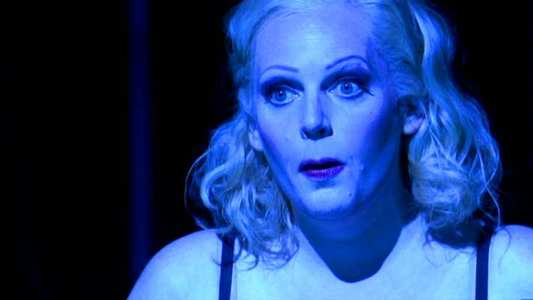
Features
The main extra comes in the form of a set of interviews with the major players (approx 65 mins) and turns out to be a fascinating insight into how the participants saw their roles in such a bleak work. My only complaint would be that it seemed to finish too soon, with one very short sentence about the way Mariss Jansons conducted the orchestra leading straight into the credits.
There is also a decent little essay within the booklet on the history of the opera and this production in particular by Reiner E Moritz (who also dorected the accompanying main extra).
Subtitles are in English, French, German, Spanish, Italian and Dutch.

Conclusion
The back of the DVD contains the message `This production contains stroboscobic light, nudity and scenes of a sexual nature`. Everything a decent opera should contain as far as I`m concerned, but there is also a fairly liberal sprinkling of brutal violence of a non-sexual nature, and not a certificate in sight. But this is art don`cha know.
I`m not complaining of course, as this is a bleak story in the first place, with sex and death at the top of the agenda, and would have been extremely shocking in the early 1930s, when it was first performed. It was, however, almost unanimously acclaimed, with 180 performances alone in Russia over the next two years, and taken around the major opera houses in Europe and the States. It just took one visit from Stalin in 1936 which led to a damning critique of `modernism` within Pravda (called `Chaos Instead of Music`) and Lady Macbeth of Mtsensk suddenly entered the history books as a dangerous precedent.
Martin Kuej`s production takes the main subjects of the opera (sex and death) and creates an appalling vision of a society in which virtually no-one has any respect for anyone else and we feel little for the people portrayed. There is some sympathy for Katerina within the story, and indeed the music, but we really do have to try hard to reach this point. The portrayal of violence in all its forms is unnerving, but due to the brilliant performances from everyone involved it is also draws you in to the story with a frightening ease.
Some alterations to the original storyline seem a little odd, considering the libretto makes references to things such as the storeroom in which Zinovy`s body is hidden (actually buried in the dirt which covers the stage) and in the final scene, where Katerina is apparently hung by the other `inmates` despite all the references to herself and Sonyetka being swept away by the river.
The musical performances are stunning, with Eva-Maria Westbroek (Katerina) absolutely perfect for the role, and the real tears she sheds at the end show how immersed she has become, both dramatically and musically.
Christopher Ventris (Sergey) is an equally fine actor, and almost succeeds in convincing us that he has been wrongly treated by all these women he has seduced. Both himself and Westbroek have played the same roles (in completely different productions) recently, and so obviously know the characters inside out. It would be great to see the recent Royal Opera House production on DVD, if only to compare Westbroek`s performaces in two hugely different productions.
Carole Wilson (Aksinya) gives the bravest performance I have ever seen on stage and is quite stoical about everything when she describes the rape scene in the accompanying documentary.
With the Concertgebouw in the pit, Mariss Janssons on top form, and an opera chorus which is one of the best in the world, this performance tops off a fine year for Opus-Arte releases.
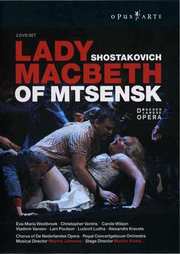
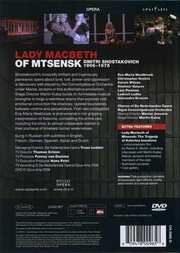
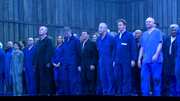
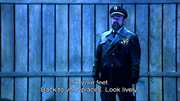

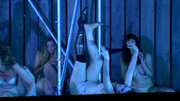





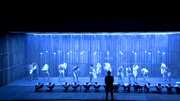
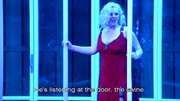
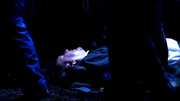
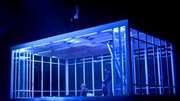




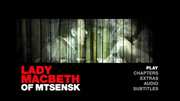






























Your Opinions and Comments
Be the first to post a comment!